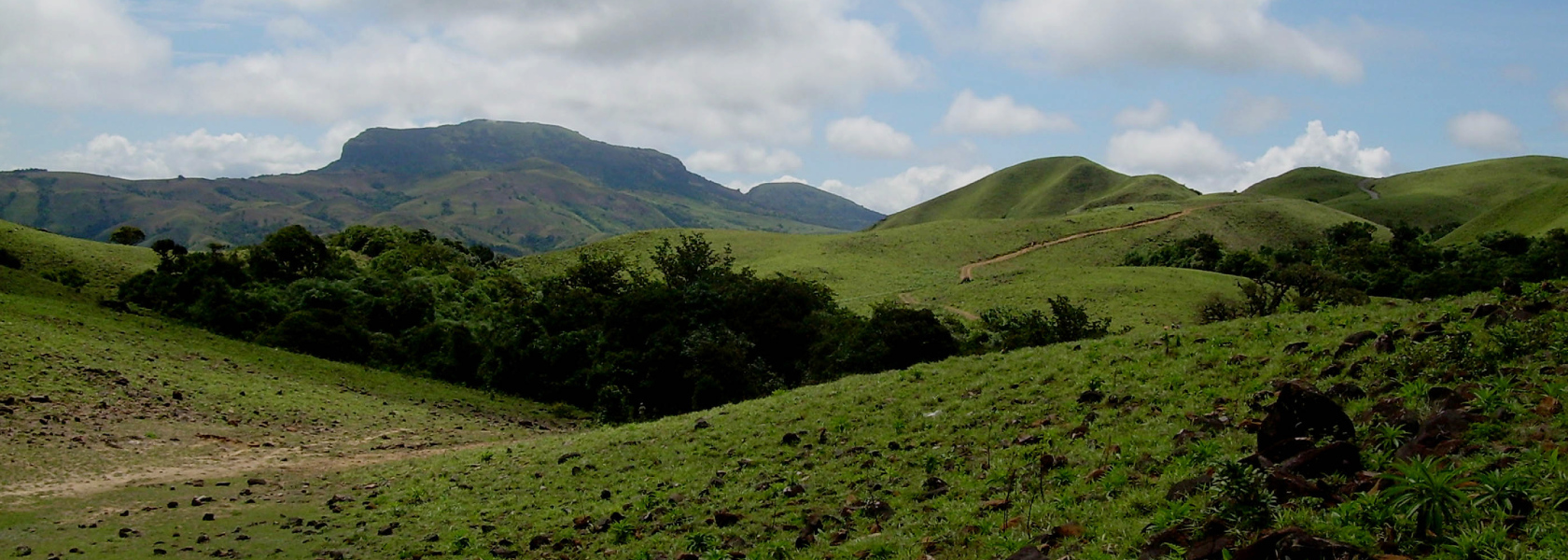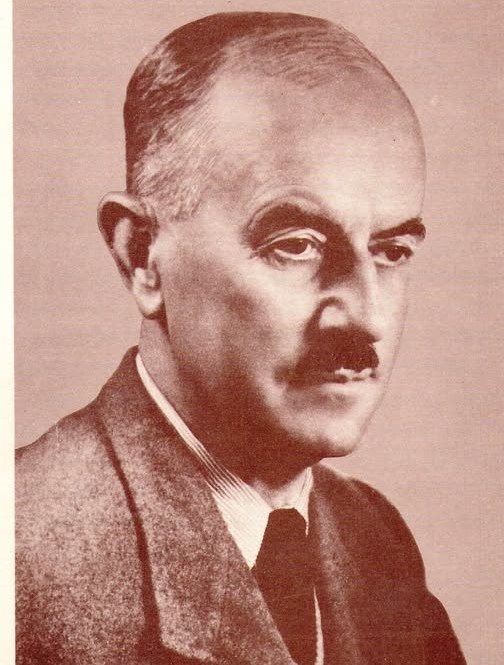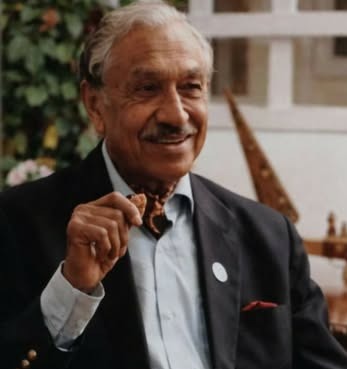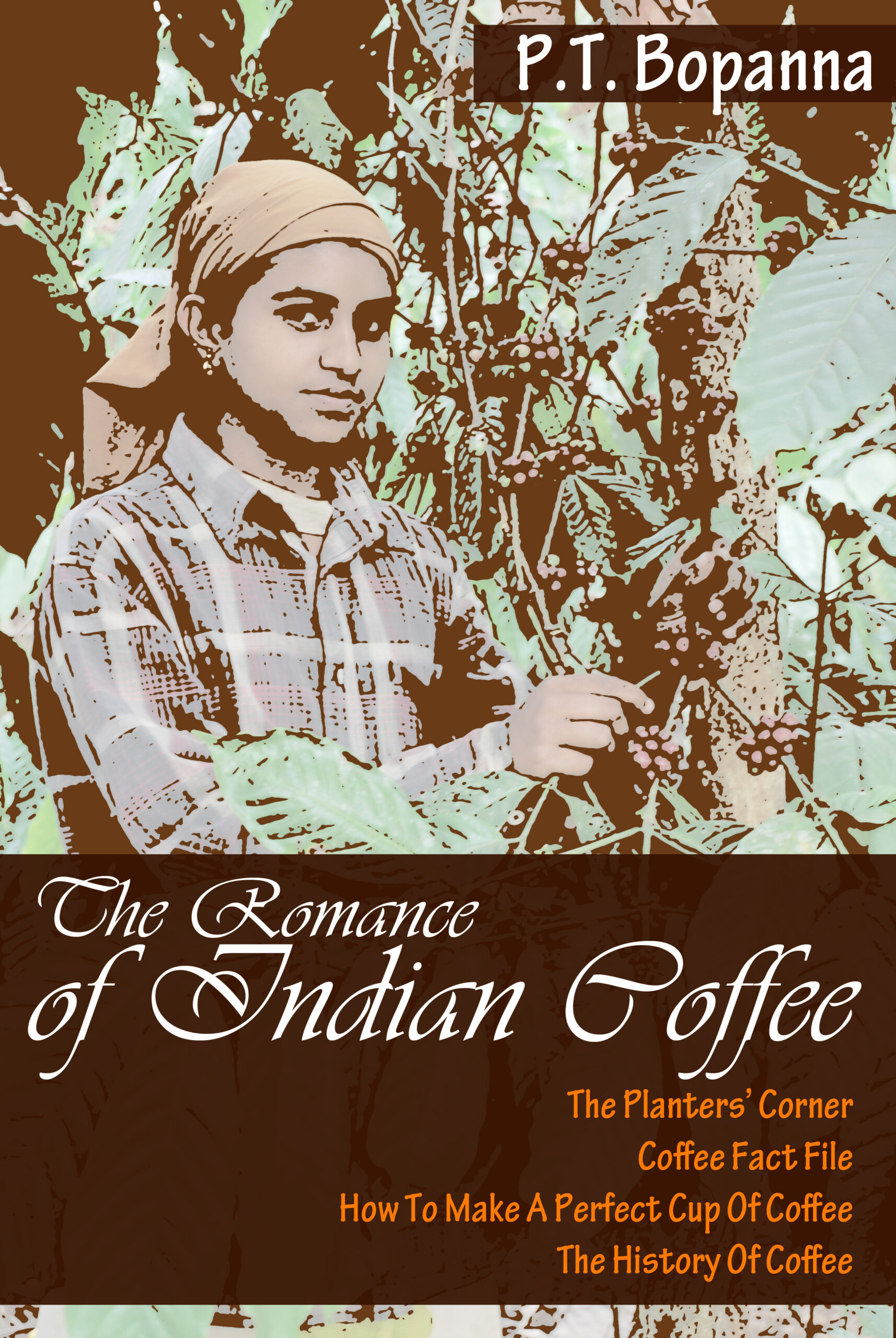
Blogs
IVOR BULL, FATHER OF INDIAN COFFEE INDUSTRY WAS A FRIEND OF COORG AND INDIA

By P.T. Bopanna
Ivor Bull (in picture), the British founder of the Consolidated Coffee Estates Ltd of Pollibetta (now part of the Tata group) in Coorg (Kodagu) and a former chairman of the Coffee Board, could be considered as the father of the Indian coffee industry.
The ‘pooling system’ of marketing coffee was his brainchild which was put in place during the Second World War to save the planters who were on the verge of ruin. The pooling system was in existence until the mid-1990s, for almost 50 years.
Even as the ‘Quit India’ movement sent panic among the British, Bull took the bold decision to convert the Consolidated Coffee Estates from a Sterling Company into a Rupee Company in India, in keeping with the prevailing Swadeshi spirit. When other fellow Britishers were getting ready to leave the country, Bull demonstrated his abiding faith in India.
Bull had also played a pivotal role in establishing the Central Coffee Research Institute in the Chikmagalur district of Karnataka.
He was born in 1894 to a Norwegian father and an English mother. After schooling in Glasgow, he moved to Australia. He was planting fruits in Murray River when the First World War began. He joined the Imperial Australian Army and saw action at the landing of Gallipoli when he suffered bullet injuries on his head. After recovering from his wounds, he returned to action and was shot again, this time through the lungs.
After the war, he tried to settle down to farming in Kent. Subsequently, he decided to accept a job with a rubber planting company in old Travancore and came out to India in 1929. Since the rubber industry was in trouble, he decided to join coffee planting with Consolidated Coffee Estates in 1929. In 1936, Bull was appointed General Manager to take over the affairs of the company in India.
The year he took charge coincided with the launching of the Indian Coffee Cess Committee under the Act of 1936. It was a statutory body set up to promote coffee and expand its market, both within the country and abroad.
Bull also became a member of the Coffee Product Sub-Committee of the United Planters Association of Southern India (UPASI). That gave him an opportunity to keep himself posted with developments related to coffee in the country.
Around this time, the Second World War broke out. As his young managers were called up for war services, Bull was forced to manage a large and widely dispersed group of estates in Coorg as well as the curing works at Hunsur, on his own.
Suddenly, in May 1940, the export market collapsed when the Germans invaded Europe. It was at this stage that Bull came into his element and the struggling coffee industry found a saviour in him.
Bull was also one of the main visionaries of the coffee ‘pooling system’ – a system where all the planters pool their coffee together and market it as a cooperative society.
In an article, Bull recalled the traumatic situation brought about by the war: “The Second World War brought another period of great anxiety to planters. At that time I was the Chairman of the Coffee Section of the UPASI, and with memories of earlier days in Australia, I wrote to Mr Howie, the then Chairman of the Australian Dried Fruits Association, who had been a neighbour in South Australia, some 20 years previously. I was aware that these growers had evolved a scheme many years ago, by which an artificial higher price in the Australian market was averaged with the actual realisations on exports which were lower. All produce was graded to fixed standards and pooled for sale at home and abroad.”
“In the result, growers received a fair price for their fruit. Mr Howie’s response was immediate and enthusiastic. He sent over all literature regarding their own organisation and also his own views. With the loss of our export markets, it appeared as if we might have to rely on a similar scheme for coffee. The UPASI, carefully studied everything which had been sent and adjusted the Australian scheme to suit our own industry. Our proposals were forwarded to the Government of India as the UPASI recommendations for dealing with the situation.”
“The proposals were not adopted by the UPASI without opposition, and I still have vivid memories of a frustrating meeting with the curers at Mangalore.”
“In Delhi, Sir Frederick James who held the European seat in the Legislature was very helpful, and eventually identical proposals came back to South India for discussion at a coffee conference, with the added prestige of being the government’s own recommendations.”
Since the world market could not indicate a price, Bull did much to persuade the government to depute somebody to study and recommend a price for coffee. S.L. Cook, the chief cost accounts officer of the finance department, was deputed to undertake the cost study in 1944. Thereafter, the costing of coffee was to become a periodic exercise for nearly 50 years.
Bull was keen on research and provided facilities for Wilson Mayne’s early work in coffee. He was instrumental in the leasing of UPASI’s experimental farm in Balehonnur to Leslie Coleman’s Coffee Research Station, which is now under the Coffee Board. Wilson Mayne was a close friend of Bull. When the pooled marketing system was being moved through UPASI, Mayne was serving as the UPASI Secretary and Bull worked closely through him.
Bull’s involvement with the affairs of the Coffee Board was increasing and finally he was elected to be its Chairman succeeding Sir Datar Singh who was at the time special advisor to the government of India.
However, the Coffee Amendment Bill, 1952, moved in the Parliament by the newly formed government was not to the liking of Bull and it was said that this had something to do with his decision to retire from India in 1954 and return to farming in England. *
The Bill was reportedly presented to Parliament without prior consultation with the Board of which he was the Chairman, or with the industry. The amendment put an end to the Board’s autonomy.
The former chairman of the Coorg Planters Association, K.P. Uthappa recalls an incident that shows the affection that Bull had for the people of India. “I first saw Mr Ivor Bull in August, 1942, when the Quit India movement was launched. A large group of high school students from Virajpet came to our school in Pollibetta in Coorg, collected us and marched up to the head office of the Consolidated Coffee Estates Ltd and started shouting patriotic slogans. Mr Bull came out of the office and talked with the leaders. Our leaders offered him a ‘Gandhi cap’ which was a red rag, as it were, to the British. Mr Bull smilingly put the same on his head and we all clapped.”
From the beginning, Bull had taken to Coorg and its people with an instinctive insight and warmth which remained with him for the rest of his life. He was an austere man with a formidable forehead and a scarred cheek. His war-time injuries made him somewhat stiff and straight. He had a keen sense of humour. His outstanding characteristics were directness, simplicity and total commitment towards any principle that he felt deeply about.
On his return to England, he bought 365 acres of farm land at Badingham in Suffolk with a bank loan. With the assistance of his daughter Sonja and her husband Russel, he grew fruit and seed crops.
Bull built up a flourishing farm business. He died in December, 1971, at the age of 77. His wife Catherine, who was once an Australian tennis star, died soon after.
* Coffee: The Consolidated Story, 1993
Source: The Romance of Indian Coffee. Author: P.T. Bopanna, Rolling Stone Publications, 2011. For paperback copy of the book, follow the link below:
Images

THIS FACEBOOK PAGE OF MINE IS ON ‘STEROIDS’
By P.T. Bopanna I have a few groups and a dozen pages on Facebook. Most of my posts are serious […]

K P UTHAPPA WILL BE REMEMBERED FOR HIS SELFLESS SERVICE IN THE DOMAIN OF COFFEE AND EDUCATION IN COORG
By P.T.Bopanna Koothanda P. Uthappa (90), who passed away on January 14 will be remembered for his selfless service, especially […]

AUTHOR SARITA MANDANNA OF ‘TIGER HILLS’ FAME HAS COME OUT WITH A NEW BOOK
By P.T. Bopanna Coorg-born Sarita Mandanna (in picture) whose debut novel Tiger Hills became a bestseller, has come out with […]

